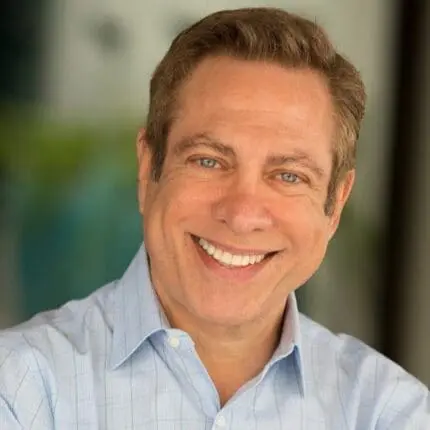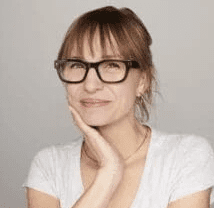Since humankind first walked the earth, we’ve been struggling with how to handle the challenges of life—especially how we cope with its inevitable end. We’ve searched for meaning in death in celestial bodies, in tea leaves and fires, in prophets and oracles. Throughout history—painted on ancient sarcophaguses, etched on crumbling cave walls, inked on long-buried scrolls—navigating grief has been a spiritual endeavor.
How well can therapists leverage spirituality as a healing resource for grieving clients? Do we think of spirituality and religion as outside our scope of clinical practice? What risks should we be aware of as we attune to clients’ religious and spiritual beliefs around death?
There are few therapists better equipped to answer these questions than David Kessler, one of the world’s foremost experts on grief and loss, author of Finding Meaning: The Sixth Stage of Grief, and founder of grief.com, a comprehensive online resource for people navigating grief.
Livia Kent: From your decades of experience as a grief specialist, what role does spirituality or religion play in your healing work?
David Kessler: I’m always surprised by how much we unknowingly comfort people in spiritual terms. I notice it most often when I’m providing support to someone who’s an atheist, and I have to remember, Oh, I can’t say that. In grief work, it’s extremely important to consider a person’s religious beliefs and how they may differ from yours.
LK: Do you ask about their beliefs upfront?
Kessler: Absolutely. I ask people about their religious or spiritual background just like a doctor might ask about a medical background. It helps me know what they might find helpful. I say might because we have to remember that everyone follows their religion in their own ways.
There’s no one Catholicism, no one Judaism, no one Christianity, no one atheism. Your religion or spirituality—which are not the same but intertwined—has been shaped by your parents, your particular clergy’s view, by your community. I can’t say to a client, “Oh, gotcha, you’re a Catholic. Now I know how you’re going to respond to this loss and what to say to you.” I have to approach each client with humility, knowing I’ve never seen their exact religion before, and it’s my job to understand their beliefs so I can help them.
You might assume you already know what someone’s conception of God is, but you don’t. Do they have a watchmaker God, one that wound us up and now just lets it all play out? Or do they have a God that’s giving out rewards and punishments? There are so many different gods.
Many years ago, I was working with the Red Cross and was assigned a Muslim family to support after their loved one died in a plane crash. I thought, I’m the wrong person. I’m clueless about Muslim beliefs. I said to the family, “I’m so sorry about this devastating tragedy, but I have to say upfront, I’m not familiar with your religious beliefs and customs. What do I need to know to help you right now?” And they told me. Sometimes, all we have to do is ask.
LK: Can you give me a few examples of the kinds of questions you might ask a client to help you understand their beliefs so that you can best support them?
Kessler: Do you have spiritual and religious beliefs about the afterlife? What do you think happened to your loved one—not their body, but their soul? If you believe in an afterlife, does your loved one have an awareness of you even after death?
LK: People may say, “My loved one is watching over me and wouldn’t want me to be sad.” But expressing sadness is an important part of the grieving process, right? How do you help clients parse those beliefs without meddling with their religious or spiritual convictions?
Kessler: I’ve worked with many people who believe that if they’d just prayed enough, their loved one wouldn’t have died. Sometimes, it’s hard to remember that it’s not our place to correct or change anyone’s beliefs.
My family’s background is Judaism and evangelical Christianity. When there’s a death, the evangelical side of the family assures everyone else that the person is with Jesus, so there’s no reason to be sad. I might say, “That’s denial! Of course there’s a reason to be sad.” But I’ve come to accept that it’s not my place to dictate any right or wrong response to death.
LK: If someone deeply spiritual comes to psychotherapy to process a death, what’s the role of the psychotherapist?
Kessler: That’s a great question. In the past, I directed some of my clients’ questions to their clergy. But now, I’m much more comfortable helping my clients explore what these questions mean to them. One I hear a lot is, How did God let this happen?
It’s not my job to provide answers, or rush anyone to answer their questions too quickly. People have to find their own answers at their own pace. As therapists, we’re simply a witness to their process. Our job is to allow them to have questions, and allow them to have a human response, which is sometimes different from a spiritual response.
When my son died, two months in, a friend called to check in on me. I said, “I’m so angry. I don’t know what to do.” And she said, “Do you want the spiritual response or the human response?” I said, “I want both, but I want the human first.” And she said, “I’m surprised you’re not breaking furniture.” When I heard that, I was like, Oh, she gets it. I could break furniture with this anger.
After we talked for a while and I felt seen in my anger, she asked, “Are you ready for the spiritual response?” I said, yes. And she said, “Your son can’t die. His body died, but he can’t die.” Hearing that was comforting because I’d felt seen in my human response first. She’d witnessed my pain before jumping to the spiritual comfort.
LK: Do you feel like people who have spiritual or religious beliefs go through the grieving process more smoothly, or faster?
Kessler: I’ll just say this, I feel like my spirituality has helped me move through my own losses. But I don’t think there’s any one group of people who have an easier time than others, regardless of their beliefs. People find meaning in a lot of ways without attributing it to God. That’s the truthful answer that spiritual people may not like hearing.
LK: Is religion ever unhelpful in grief?
Kessler: Well, people might say, “Suicide is a horrible sin, and my loved one is being punished for all eternity because they died by suicide.” After I let clients go through their human experience, I’ll often say, “There are many views about that, even within your own community.” And people can usually find a priest or someone else who will give them a different view of suicide. I don’t give them a different view, but I can wonder with them if there are any other views out there.
David Kessler
David Kessler, MA, RN, FACHE, is one of the world’s foremost experts on healing and loss. He’s the author of six bestselling books. His newest is Finding Meaning: The Sixth Stage of Grief. He coauthored two bestsellers with Elisabeth Kübler-Ross.
Livia Kent
Livia Kent, MFA, is the editor in chief of Psychotherapy Networker. She worked for 10 years with Rich Simon as managing editor of Psychotherapy Networker, and has collaborated with some of the most influential names in the mental health field on stories that have become widely read articles and bestselling books. She taught writing at American University as well as for various programs around the country. As a bibliotherapist, she’s facilitated therapy groups in Washington, DC-area schools and in the DC prison system. In 2020, she was named one of Folio Magazine’s Top Women in Media “Change-Makers.” She’s the recipient of Roux Magazine‘s Editor’s Choice Award, The Ledge Magazine‘s National Fiction Award, and American University’s Myra Sklarew Award for Original Novel.













